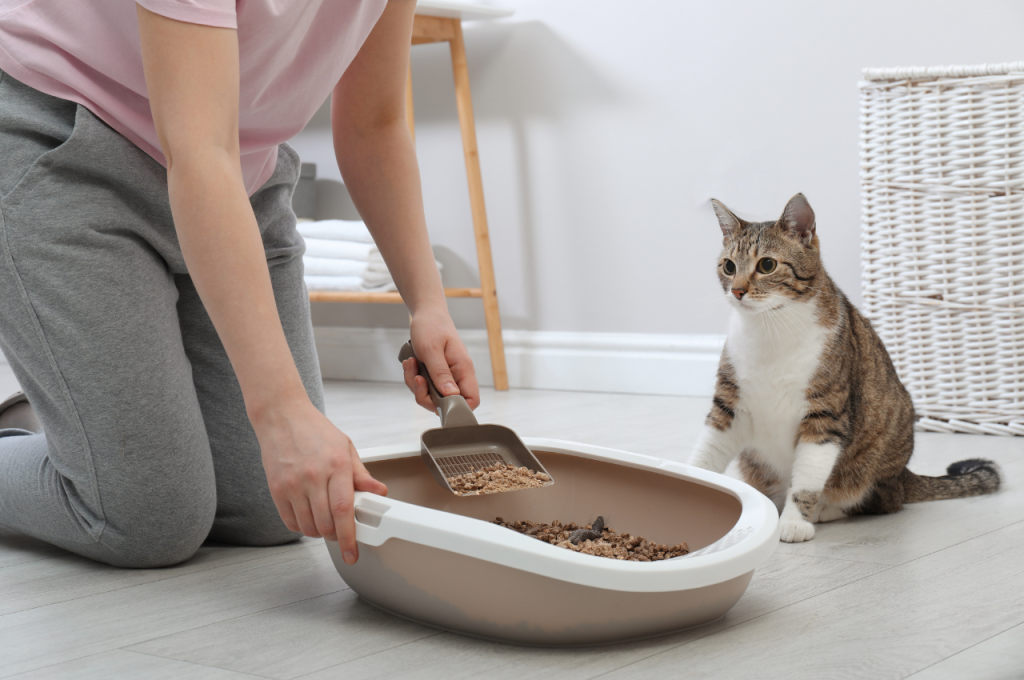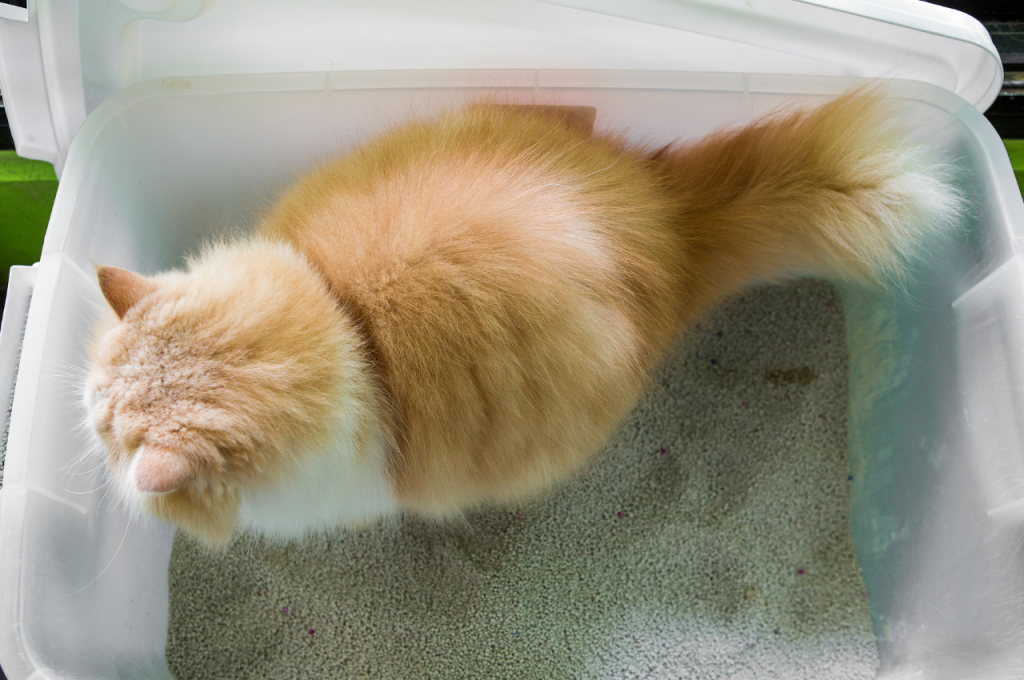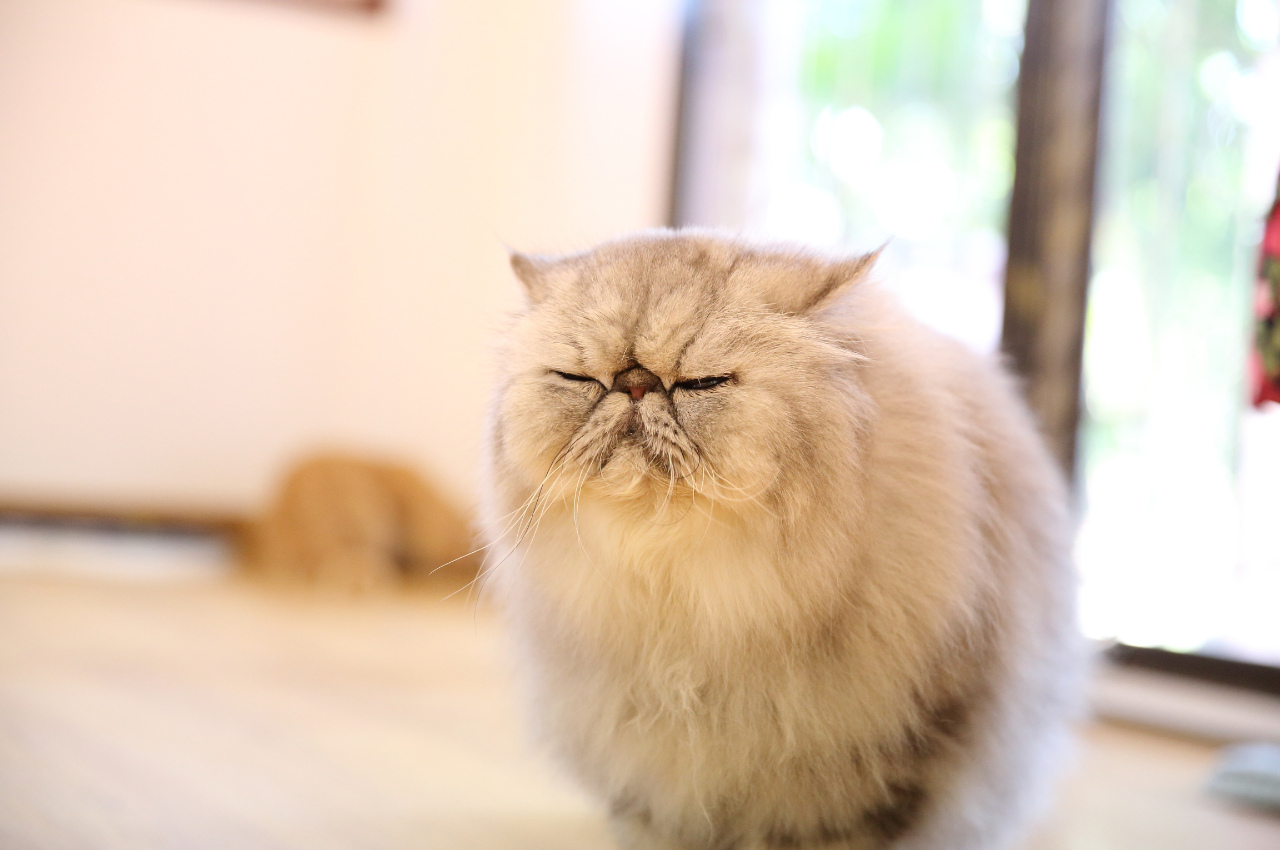To help a constipated cat poop, add pumpkin puree to their food or give them a laxative prescribed by a vet. Constipation in cats can be uncomfortable and dangerous if not addressed promptly.
Providing remedies like pumpkin puree or a vet-recommended laxative can help ease the issue and promote regular bowel movements. It’s important to monitor your cat’s condition closely and consult with a veterinarian if the problem persists. By taking proactive steps to address constipation, you can ensure your feline friend stays healthy and comfortable.
Introduction To Feline Constipation
Feline constipation can be distressing for cats. To help your constipated cat poop, offer more water, increase fiber intake, and try gentle belly massages. Consult a vet if the issue persists. Regular exercise and a balanced diet can prevent future episodes.

Feline constipation is a common problem among cats of all ages and breeds. It occurs when a cat has difficulty passing stools, resulting in hard, dry feces that are painful to expel. This condition can be caused by a variety of factors, including dehydration, lack of exercise, and a diet low in fiber. If left untreated, constipation can lead to serious health complications, such as megacolon, a condition in which the colon becomes enlarged and loses its ability to contract. In this article, we will discuss the common signs and symptoms of feline constipation, as well as the factors that can contribute to this condition.
Common Signs And Symptoms
There are several signs and symptoms that may indicate that your cat is constipated. These include:
- Straining to defecate
- Passing small, hard stools
- Frequent trips to the litter box without producing any feces
- Lethargy and loss of appetite
- Vomiting
- Bloated abdomen
If you notice any of these symptoms in your cat, it’s important to take action right away to prevent the condition from worsening.
Factors Leading To Constipation In Cats
Several factors can lead to constipation in cats, including:
| Factor | Description |
| Dehydration | A lack of water in the diet can cause the feces to become hard and difficult to pass. |
| Lack of Exercise | Exercise helps to stimulate the digestive system and promote regular bowel movements. |
| Diet Low in Fiber | A diet that is low in fiber can cause the feces to become dry and compacted, making them difficult to pass. |
| Obesity | Obese cats are more prone to constipation due to their sedentary lifestyle and increased risk of dehydration. |
| Underlying Medical Conditions | Conditions such as megacolon, tumors, and neurological disorders can all lead to constipation in cats. |
By addressing these factors and taking steps to promote regular bowel movements, you can help prevent constipation in your cat and ensure their overall health and well-being.
Immediate Steps For Constipated Cats
Cats can suffer from constipation, which can be uncomfortable and potentially harmful to their health. Immediate steps can be taken to help your constipated cat find relief. By assessing your cat’s condition and knowing when to seek veterinary care, you can ensure that your feline friend receives the appropriate attention and care.
Assessing Your Cat’s Condition
When assessing your cat’s condition, it’s important to observe their behavior and physical symptoms. Look for signs of straining in the litter box, reduced or no bowel movements, abdominal discomfort, and loss of appetite. Additionally, monitor the consistency of their stool and check for any signs of blood or mucus.
If your cat is exhibiting these symptoms, it’s essential to take action promptly to alleviate their discomfort and prevent potential health complications. This can be achieved through a combination of dietary adjustments, hydration, and gentle physical stimulation.
When To Seek Veterinary Care
If your cat’s constipation persists for more than 24 hours despite at-home interventions, or if they display symptoms of distress such as lethargy, vomiting, or refusal to eat, it’s crucial to seek veterinary care immediately. Professional evaluation and treatment may be necessary to address any underlying medical issues and provide your cat with the relief they need.
Dietary Changes For Constipation Relief
When it comes to helping your cat with constipation, making the right dietary changes can play a crucial role in providing relief. By incorporating high-fiber foods and ensuring proper hydration, you can help regulate your cat’s bowel movements and alleviate constipation. In this section, we will explore the importance of high-fiber foods and hydration in relieving constipation in cats.

High-fiber Foods
Feeding your cat a diet rich in high-fiber foods is essential for promoting regular bowel movements. Fiber adds bulk to the stool, making it easier for your cat to pass. Here are some high-fiber foods you can include in your cat’s diet:
- Pumpkin: Rich in fiber, pumpkin can help regulate your cat’s digestion. Make sure to use plain, canned pumpkins without any added sugars or spices.
- Psyllium husk: This natural fiber supplement can be mixed with your cat’s food to promote regularity.
- Brown rice: Cooked brown rice is a great source of fiber that can help soften the stool.
Remember to introduce these high-fiber foods gradually into your cat’s diet and monitor their response. It’s important to consult your veterinarian before making any significant changes to your cat’s diet.
Hydration And Its Importance
Proper hydration is crucial for maintaining healthy bowel movements in cats. Water helps soften the stool, making it easier to pass. Here are some tips to ensure your cat stays hydrated:
- Provide fresh water: Make sure your cat has access to clean and fresh water at all times. Consider using a water fountain to encourage drinking.
- Wet food: Including wet food in your cat’s diet can increase their overall water intake and help prevent dehydration.
- Broth or diluted wet food: Adding a small amount of low-sodium chicken or bone broth to your cat’s food can entice them to drink more water.
By promoting proper hydration, you can help prevent constipation and maintain your cat’s overall digestive health.
In conclusion, incorporating high-fiber foods and ensuring adequate hydration are essential dietary changes that can help relieve constipation in cats. Remember to consult your veterinarian before making any significant changes to your cat’s diet, and monitor their response to these dietary modifications.
Home Remedies For Quick Relief
Pumpkin: A Natural Laxative
Canned or cooked pumpkin is a natural remedy to help relieve constipation in cats. It’s high in fiber, which aids in digestion and promotes regular bowel movements. The fiber content in pumpkin adds bulk to the stool, making it easier for the cat to pass. Simply add a small amount of pumpkin puree to your cat’s food to help alleviate constipation.
Olive Oil: A Gentle Option
Olive oil is a gentle and effective home remedy for constipated cats. The lubricating properties of olive oil can help facilitate the passage of stool. Add a small amount of olive oil to your cat’s food to help soften the stool and ease constipation. It’s important to start with a small amount and gradually increase if necessary to avoid gastrointestinal upset.
Litter Box Habits And Environment
Cats can be sensitive to changes in their environment, which can affect their litter box habits and digestive health. Maintaining cleanliness and providing stress-free surroundings are crucial for preventing constipation and ensuring your cat’s well-being.
Maintaining Cleanliness
Regularly cleaning the litter box is essential for encouraging your cat to use it. A dirty litter box may cause your cat to avoid it, leading to potential constipation issues.
Stress-free Surroundings For Digestive Health
Creating a calm and comfortable environment for your cat can help promote healthy digestion and prevent constipation. Reducing stressors such as loud noises or sudden changes can contribute to a healthier digestive system.
Exercise And Its Role In Preventing Constipation
Exercise plays a crucial role in preventing constipation in cats. It helps in promoting digestion and bowel movement, keeping the gastrointestinal system healthy.
Interactive Play Sessions
Cats enjoy interactive play sessions that stimulate their natural hunting instincts. These activities encourage physical movement and help in preventing constipation.
Encouraging Movement
Encourage your cat to move around by providing toys and engaging in playtime. Physical activity aids in digestion and prevents constipation issues.
Over-the-counter Solutions
When your cat is constipated, there are Over-the-Counter solutions you can try to help alleviate the issue.
Fiber Supplements
Fiber supplements can aid in promoting regular bowel movements for your feline friend.
Laxatives: Use With Caution
Laxatives should be used with caution and under veterinary guidance to prevent any adverse effects.
Long-term Management And Prevention
Long-term management and prevention play a crucial role in maintaining a cat’s digestive health. By implementing the following strategies, you can help prevent constipation issues in your feline friend.

Regular Veterinary Check-ups
Schedule annual check-ups to monitor your cat’s health and address any potential issues early.
Sustaining A Balanced Diet
Ensure your cat’s diet is high in fiber to promote regular bowel movements.
Conclusion
Dealing with a constipated cat can be a daunting task for any pet owner. However, by following the steps outlined you can help your furry friend have a comfortable and healthy bowel movement. Remember to always consult with your veterinarian if you notice any unusual symptoms or if your cat’s constipation persists.
With a little patience and care, you can help your cat get back to their happy and healthy self.
